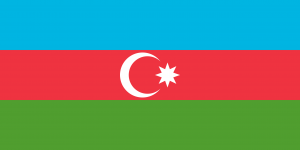Language/North-azerbaijani/Vocabulary/Family-Members
When beginning to learn a new language, it's important to learn the basic vocabulary such as numbers, greetings, and family members. In this lesson, we will focus on the vocabulary related to family members in North Azerbaijani.
Basic Vocabulary
Here are the most common family members in North Azerbaijani:
| North Azerbaijani | Pronunciation | English |
|---|---|---|
| ana | [ana] | mother |
| ata | [ata] | father |
| bacı | [baji] | sister |
| qardaş | [qardaş] | brother |
| qızı | [qɯzɯ] | daughter |
| oğlu | [oɣlu] | son |
| qayınana | [qɑjɯnɑnɑ] | mother-in-law |
| həvəşi | [hɘvɘʃi] | husband |
| xətər | [xɘtɘʀ] | wife |
It's important to note that in North Azerbaijani, the words for sister and brother differ depending on the gender of the speaker. For example, if you are a male speaking about your brother, you would use the word "qardaş", but if you are a female speaking about your brother, you would use the word "birader". Similarly, if you are a female speaking about your sister, you would use the word "bacı", but if you are a male speaking about your sister, you would use the word "xalı".
It's also common in North Azerbaijani culture to refer to older and younger siblings differently. The word "böyük" means "older" and the word "kiçik" means "younger". So, for example, if you have an older sister, you would refer to her as "böyük bacı".
Extended Vocabulary
In addition to the basic family members, there are several extended family members that are important to know in North Azerbaijani:
| North Azerbaijani | Pronunciation | English |
|---|---|---|
| bacanak | [bǝd͡ʒǝnᴀk] | brother-in-law (sister's husband) |
| enişte | [ɛniʃtɛ] | brother-in-law (wife's brother) |
| dünənin | [dɯnɘnin] | uncle |
| dayı | [dɑjɯ] | uncle |
| nənə | [nɘnɘ] | grandmother |
| baba | [baba] | grandfather |
| qayın | [qɑjɯn] | father-in-law |
It's worth noting that the word "enişte" can also be used to describe the relationship between a man and his sister-in-law's husband.
Cultural Information
Family is a cornerstone of North Azerbaijani culture, and it's common for families to be large and for extended family members to live together. In North Azerbaijani culture, it's also customary for the eldest son to inherit his father's property and become the head of the household after his parents pass away.
Another important aspect of North Azerbaijani culture is respect for elders. Elders are highly regarded in society and are often consulted for advice and guidance by younger generations. It's also common for younger family members to serve tea and other refreshments to their elders as a sign of respect.
Tips and Tricks
Here are some tips for learning family member vocabulary in North Azerbaijani:
- Practice with flashcards: Write the North Azerbaijani word on one side of the card and the English translation on the other. Test yourself by flipping the cards over and saying the translation out loud.
- Use the vocabulary in context: Practice using the family member vocabulary in North Azerbaijani sentences. For example, "Ana mənim toyuma gələcək" means "My mother is coming to my wedding".
- Create visual aids: Draw a family tree and label each family member in North Azerbaijani. This can help you remember the vocabulary and how the family members are related.
Learning the vocabulary for family members in North Azerbaijani is an important first step in gaining a better understanding of this rich culture. By practicing and using these words in context, along with the tips and tricks provided, you'll be on your way to mastering the basics of North Azerbaijani language and culture.

